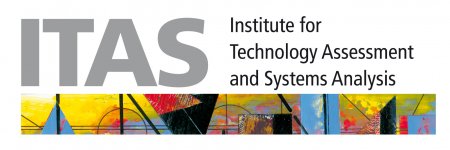
International Graduated Summer School: Techno Science Societies - Between Myth Formation and Societal Structure
Descripción
Agenda: 1.How is the emergence of political myths related to changes of social structure? We are living in times where the articulation and expression about radical change has become quite common. Diagnosing necessities of 'Great Transformations', living in the 'Anthropocene', the quest for a ‘post-carbon society’ or the upcoming of a 'TechnoScienceSociety' (Maasen et al. 2016) are self-descriptions of societies or the conditions of human life offered by professional observers – and some of them are even circulating in the wider public. Yet these ideas are not only self-descriptions. At the same time, they are political myths by serving as narratives of big deliberate transformations – they are an instrument to explain the changes in the present and to ascribe responsibility, blame and expectations. In this section, we look for their description, ways of unfolding and reconstructive analyses of myth creation and impact. We apply a special focus on how this formation of myths is related to changes in social structure. Therefore, we invite papers which are looking at alterations of social structure in specific arenas (these might relate to a single technology such as nanotechnology or robotics as much as to broad socio-technical programs such as energy transitions, big data or military technology) and which align these changes with the narratives brought about. What do these narratives indicate about the changes observed? In what way can we understand these relations between myth formation and social structure? 2.What are regulatory processes political myths are aligned with? As social structures are undergoing a more or less fundamental change, problems of regulation emerge. This description is tightly connected to the question of how far-reaching changes in social structure are. In many cases, these changes are driven by a paradoxical logic of building up complexity in order to increase the regulatory problem-solving capacity. One example is the establishment of the precautionary principle while hoping to address not only known risks but also unknown ones to prevent future hazard. Such processes can be observed in the regulation of GMOs (genetically modified organisms) or the regulation of chemicals, but also with regard to the establishment of transnational regimes as the IPCC (Intergovernmental Panel on Climate Change) or IPBES (Intergovernmental Platform on Biodiversity and Ecosystem services). Precaution in the light of the unknown, regulation of the thermostat of the earth or conservation of biodiversity for sustainability purposes, these are stories about control options in situations of high fragility. In this section, we invite papers to address the relations between (political) myths and the emergence of new forms of regulation – or the perpetuation of previous arrangements despite evolutions in the overall situation. Of interest are also specific elements of regulation like trust or responsibility and their rearrangement while structures are undergoing a more or less fundamental change. 3.What are instrumental and symbolic functions of political myths? "Narrative variations" can lead to multiple ways of telling the story around a political myth, e.g. to instigate or prevent an innovation process or evoke a whole research program such as "Horizon 2020" under the label of promoting "responsible research and innovation". Instrumental functions are those that a myth "really", i.e. operatively unfolds compared to those that are merely stated or normatively associated with it, such as the promotion of responsibility. In this way, symbolic functions of myths often relate to the legitimization of policies toward interest groups, the public or political opposition. In the case of "responsible research and innovation", for instance, processes of involving potentially affected – the public – are commonly regarded as a means to stipulate "consensus" among developers, politics and civil society. Still, empirical observations suggest that many participation procedures lack the desired impact while the important decisions are taken elsewhere. Is there a discrepancy between symbolic (consensus, acceptance) and instrumental (legitimization, distraction) functions? Another example is the field of technology assessment (TA): Can this practice of scientific policy consulting on emerging technologies lead to better decision-making? What is the relation between possible symbols (legitimizing decisions through scientific reference) and actual impacts such as successful cases of responsible technology development? In this section, we invite papers which are tracking the emergence and the social as well as structural relevance of selected political myths. Thereby light should be shed on the specific form, function and historic variation of political myths while influencing changes of social structure.
Objetivos
The main objective of this summer school is to unfold the changes in social structure and the narratives about them as well as their reciprocal dynamic of amplification and demise. What is the relation between changing social structures and new purposes for regulation? What role do political myths play along these processes?Colaboradores
Directoras/es

Constanze Scherz
Precios matrícula
| MATRICULA | Hasta 31-05-2016 | Hasta 18-07-2016 |
|---|---|---|
| 123,00 EUR | 145,00 EUR | |
| 73,00 EUR | 94,00 EUR | |
| 20,00 EUR | 20,00 EUR | |
| - | 73,00 EUR |
Lugar
Palacio Miramar
Pº de Miraconcha nº 48. Donostia / San Sebastián
Gipuzkoa
Palacio Miramar
Pº de Miraconcha nº 48. Donostia / San Sebastián
Gipuzkoa





